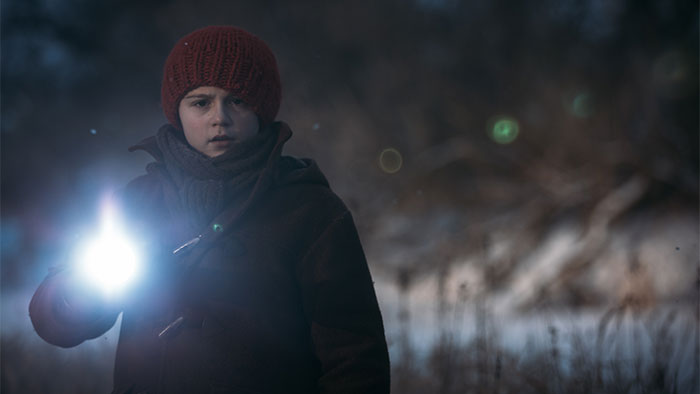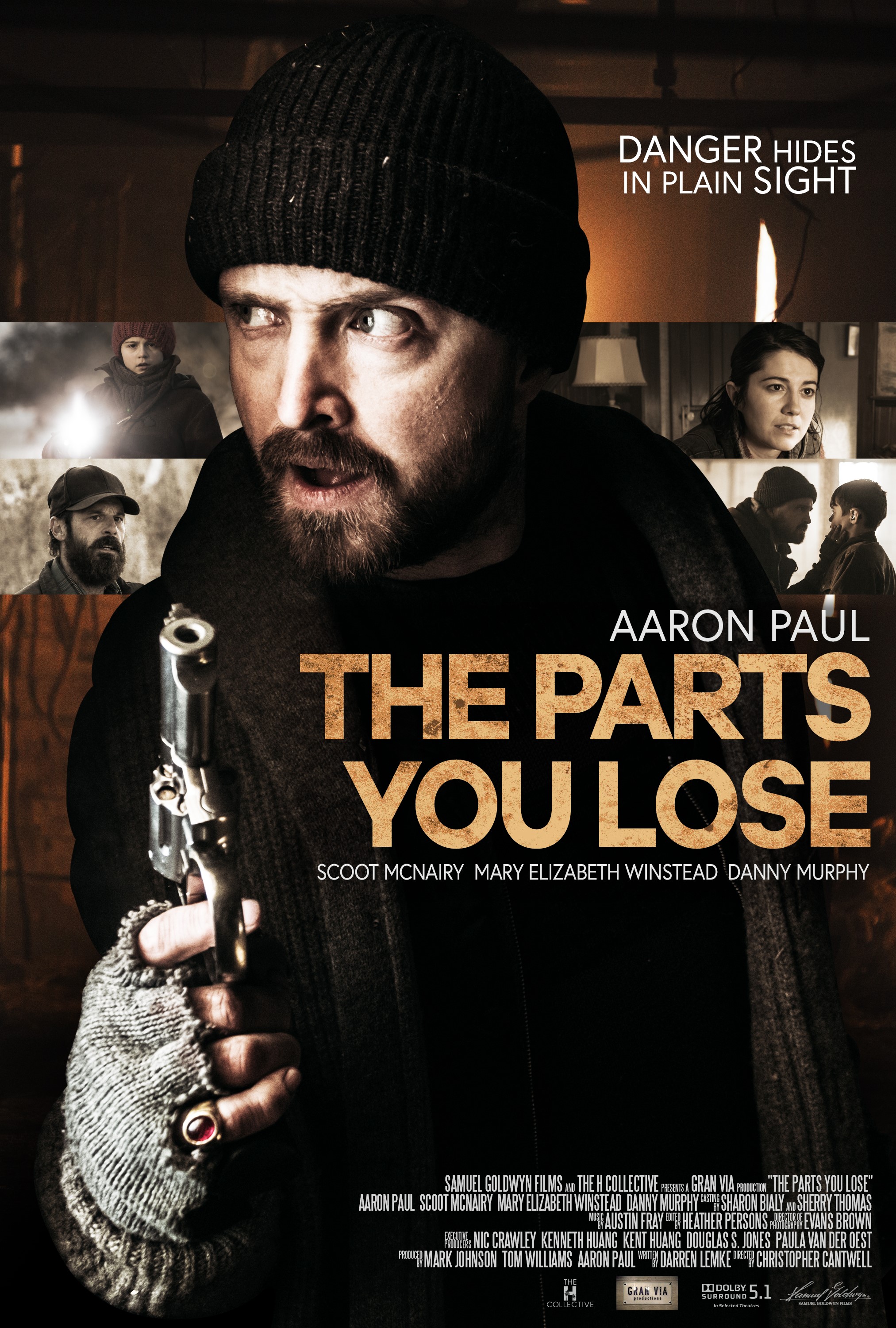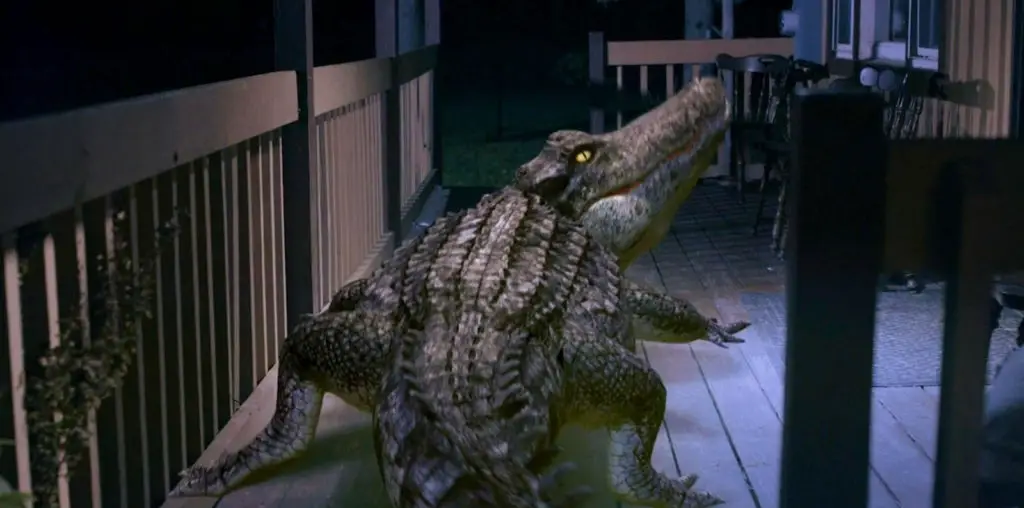
All of this is presented in a straightforward, stiffly commercial sort of way, carefully stepping into the footsteps that countless other movies have left behind. As solid as the performances are and as sensible as the screenplay is, there’s nothing to get excited about. Nothing leaps off the page, so to speak. Wesley’s little arch rings true, and you can easily see his trajectory in a timeline without the mysterious stranger, but it plays out in such a surgical, film school, inside-the-lines manner that it hardly leaves an impression.

“It won’t lay a finger on you or look you in the eyes for longer than you’re comfortable…”
Aaron Paul brings his trademark street-corner angst to the party, and it plays just fine. As child actors go, Murphy is pretty good. McNairy and Winstead do a fine job of realizing that silent, domestic agony that neither party wants to bring out into the open, fearing it won’t go back in.
For the average channel-flipper or stream-jumper—there’s a salmon joke in there that I’m not brave enough to look for—you can trip over worse movies than The Parts You Lose. In fact, the average time-killer looking for something to watch may even be left satisfied by the movie’s plainness. By the time the credits fall down the screen, you got it. You’re in the know. It won’t offend, provoke, shock, or throw you for a loop. It won’t lay a finger on you or look you in the eyes for longer than you’re comfortable with. All told, its existence is difficult to justify, but it’s here, and it’s not bad.

"…you can trip over worse movies than The Parts You Lose."

